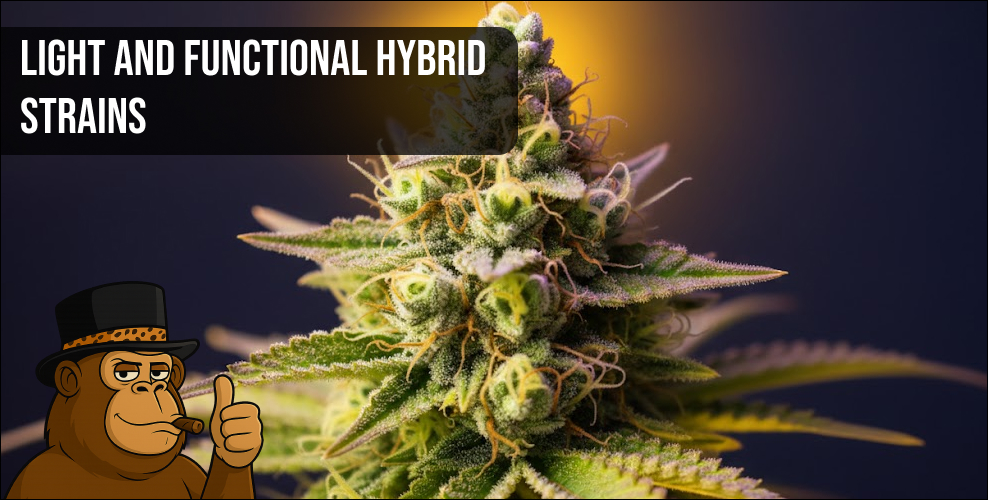
Weed Education
Does weed make you lose weight?

“Does weed make you lose weight?” is a topic that has garnered significant attention in recent years. Studies have explored the potential effects of cannabis on appetite, metabolism, and body weight, yielding interesting findings.
While some research suggests a correlation between cannabis use and lower rates of obesity, it is important to note that cannabis is not considered a treatment for weight loss or obesity.
Understanding the complexities of this relationship and the various factors involved is crucial for individuals seeking information about how weed make you lose weight.
In case you are interested in the connection between cannabis and weight loss. We recommend reading these articles:
Does cannabis help you lose weight?
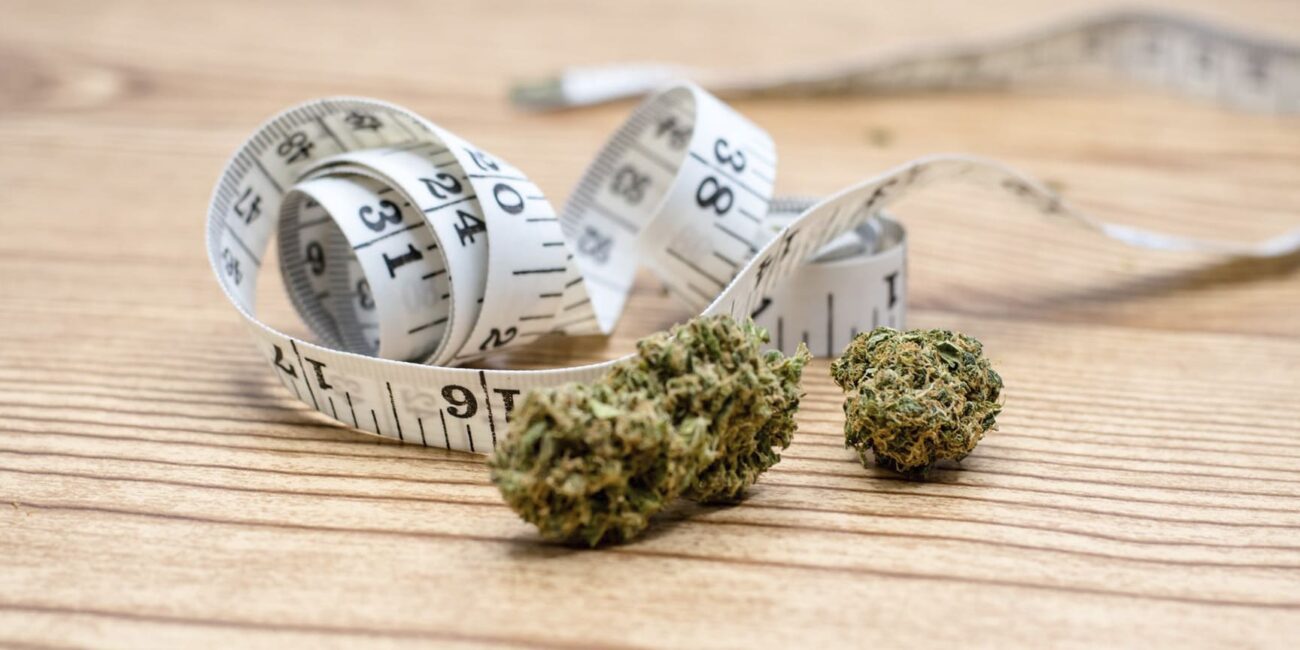
A comprehensive review conducted in 2011 found that individuals who do not use cannabis have higher rates of obesity compared to those who use cannabis at least three days a week. This review analyzed two surveys involving a total of 50,736 participants.
Among cannabis users, the prevalence of higher body weight was 16.1%, while among non-users, 22% of participants were classified as having elevated weight.
Similarly, an earlier study conducted in 2010 reached similar conclusions.
Recent studies have also shown a consistent association between cannabis use and weight. A meta-analysis conducted in 2018 revealed that cannabis users tend to have lower body mass index (BMI) and a reduced prevalence of obesity.
Interestingly, this analysis also found that cannabis use was associated with increased caloric intake.
It is important to note that while these studies suggest a link between cannabis use and lower body weight, cannabis is not considered a suitable treatment for obesity. The underlying reasons for this association have not been fully explained in the research conducted thus far.
Weed may have a link to make you lose weight and rates of obesity because it:
- may lower alcohol consumption
- increases activity levels in some people
- might affect metabolism
- may help with sleep issues
Try from our catalog
FORBIDDEN FRUIT — Sauce Cart
Kush Mints [hybrid] — Sauce Cartridge
How does cannabis affect hunger?

In a 2014 article published in Innovations in Clinical Neuroscience, it was highlighted that the consumption of cannabis, either through smoking or ingestion, can enhance a person’s appetite by activating cannabinoid (CB1) receptors in the brain. These receptors play a role in releasing a hormone that increases food intake.
Human bodies naturally possess cannabinoid receptors, and compounds found in the cannabis plant, such as cannabidiol (CBD) and tetrahydrocannabinol (THC), interact with these receptors, influencing various physiological processes.
Furthermore, findings from animal studies suggest that cannabis may stimulate the release of ghrelin, a hormone known to stimulate appetite.
You can read more information about it in our article “Why does weed make you hungry?”
Cannabis and metabolism
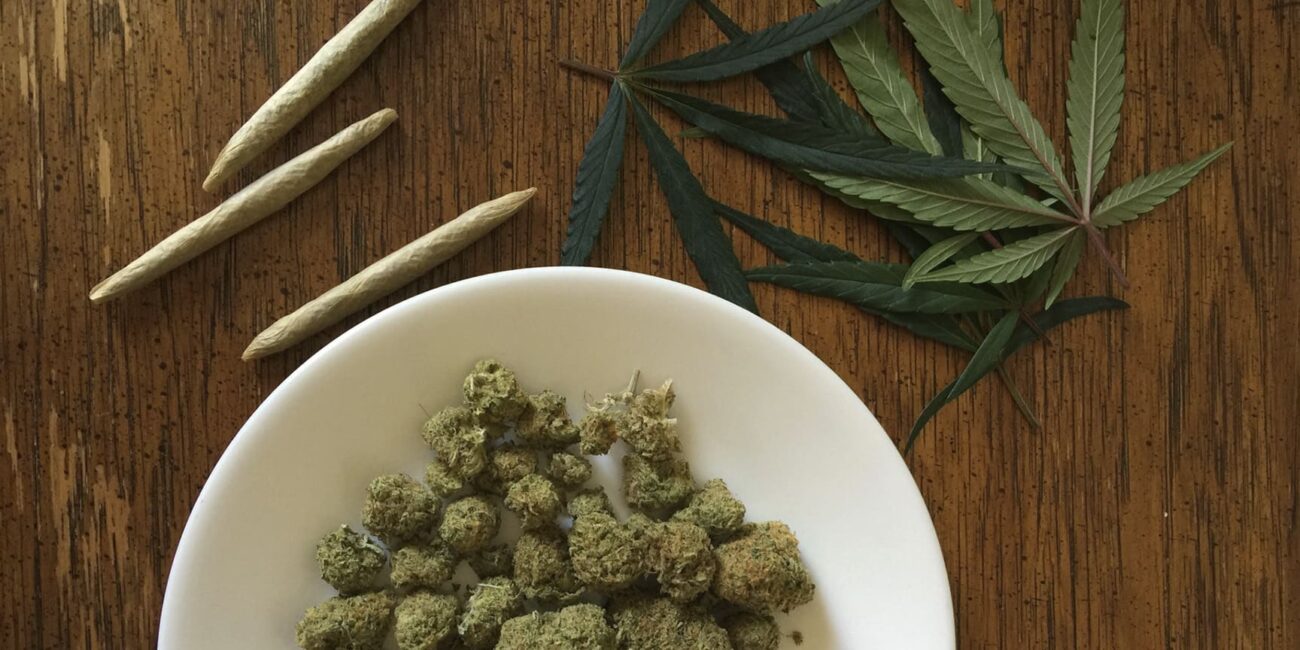
With advancing scientific understanding of cannabis, researchers are gaining insights into its potential impact on appetite and metabolism.
A recent small-scale study conducted in 2020, involving regular cannabis users, observed various blood markers associated with metabolism when comparing the effects of smoking, vaporizing, or ingesting cannabis versus a placebo.
This connection between cannabis and metabolism can be attributed to its interaction with the endocannabinoid system, which plays a crucial role in regulating functions such as memory, sleep, pain, immune responses, and appetite.
Specifically, the cannabinoid tetrahydrocannabinol (THC) activates the cannabinoid receptor type 1 within the endocannabinoid system. Researchers propose theories on how THC affects body weight:
- An overactive receptor may contribute to obesity and increased fat levels.
- Animal studies involving mice suggest that blocking this receptor could potentially lead to reductions in body weight and fat levels.
Interestingly, while THC activates this receptor, research indicates that other cannabinoid compounds may possess the ability to block it without inducing psychoactive effects.
How Other Cannabinoids Affect Weight

In smaller amounts, the cannabinoid tetrahydrocannabivarin (THCV) has shown potential benefits for weight loss. Unlike THC, THCV functions by blocking CB1 receptors in the brain instead of activating them, which means it lacks the psychoactive effects associated with THC.
Consequently, THCV acts as an appetite suppressant and that’s why that weed cannabinoid can make you lose weight.
This discovery has made THCV particularly intriguing for addressing obesity as a potential treatment option. However, it is essential to note that higher doses of THCV can be psychoactive and may exhibit similar effects to and interact with THC. Therefore, it is advisable to use THCV in moderation.
Here are some of the weed strains that have tested for higher amounts of THCV:
Doug’s Varin
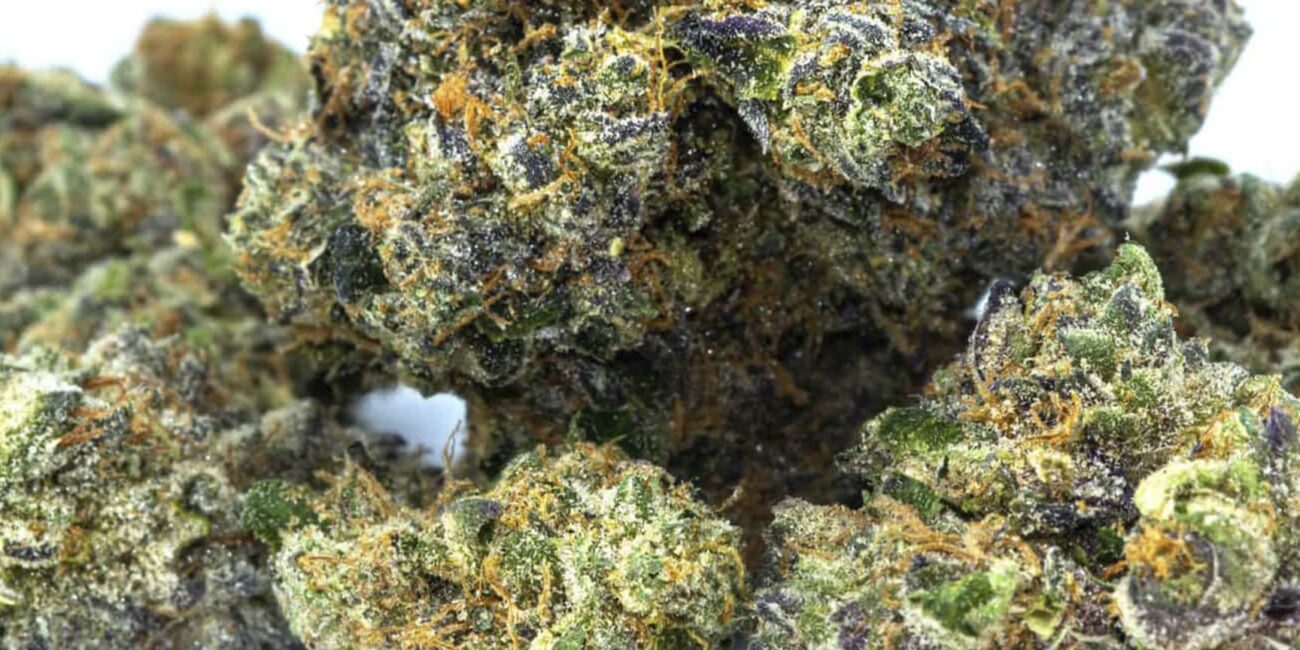
THC: 22-24%
Doug’s Varin is an exceptionally rare and mysterious 100% pure sativa strain with undisclosed genetics, kept secret by its breeders.
Despite its enigmatic background, this bud has gained infamy in the cannabis community for its remarkable potency. It boasts an impressive THCA level of 19%, a THCVA level of 15%, and a high THC content ranging from 22% to 24%.
The combination of these three potent components makes Doug’s Varin an unforgettable smoking experience.
Effects: Doug’s Varin provides a rush of creative energy that leaves users feeling motivated, focused, and ready for any task. The high is characterized by mental clarity and rejuvenation without overwhelming the senses.
Doug’s Varin also has appetite-suppressing properties, making it beneficial for individuals dealing with eating disorder.
Smell: Doug’s Varin boasts an enticing aroma that combines earthy pine with a hint of citrus. The scent captivates the senses, offering a refreshing and natural fragrance. The earthy notes evoke a sense of grounding, while the subtle citrus undertones add a touch of brightness and freshness to the overall aroma.
Taste: When it comes to taste, Doug’s Varin delights the palate with a unique combination of sweet citrus and pine flavors, accompanied by herbal undertones. The citrusy sweetness provides a pleasant and tangy twist, while the pine flavor adds depth and complexity.
The herbal undertones contribute to the strain’s well-rounded taste profile, creating a satisfying and enjoyable experience with each inhale.
Dutch Treat

THC: 18-25%
Dutch Treat, a beloved strain in Amsterdam, is an indica-dominant hybrid with a sativa to indica ratio of 20:80. Its genetic makeup leans towards indica, offering a near-instant head rush followed by a numbing body high that stops short of inducing couch-lock.
With THC levels ranging from 18% to 25%, Dutch Treat is potent without being overly aggressive. It emits a pleasant aroma of eucalyptus and has a sweet, earthy pine flavor.
Effects: Dutch Treat provides a range of effects that are both uplifting and relaxing. The initial head rush is almost immediate, inducing a sense of euphoria and an upbeat mood. The body high that follows brings deep relaxation without causing excessive sedation or couch-lock.
Dutch Treat is known to be effective in managing anxiety, pain, insomnia, and symptoms associated with conditions like ADHD, PTSD, migraines, and arthritis. It offers a well-rounded experience that combines mental upliftment with physical relief.
Smell: Dutch Treat has a distinct aroma characterized by notes of eucalyptus. The scent is refreshing and invigorating, providing a unique olfactory experience. The eucalyptus fragrance adds a touch of herbal freshness to the strain’s overall profile, making it a pleasant and enticing option for cannabis enthusiasts.
Taste: When it comes to taste, Dutch Treat delights the palate with its sweet, earthy pine flavor. The earthy undertones complement the sweetness, creating a well-balanced taste profile.
The pine flavor adds depth and complexity to the overall taste experience.
Combined, these flavors result in a satisfying and enjoyable sensation with each inhale.
Pineapple Purps
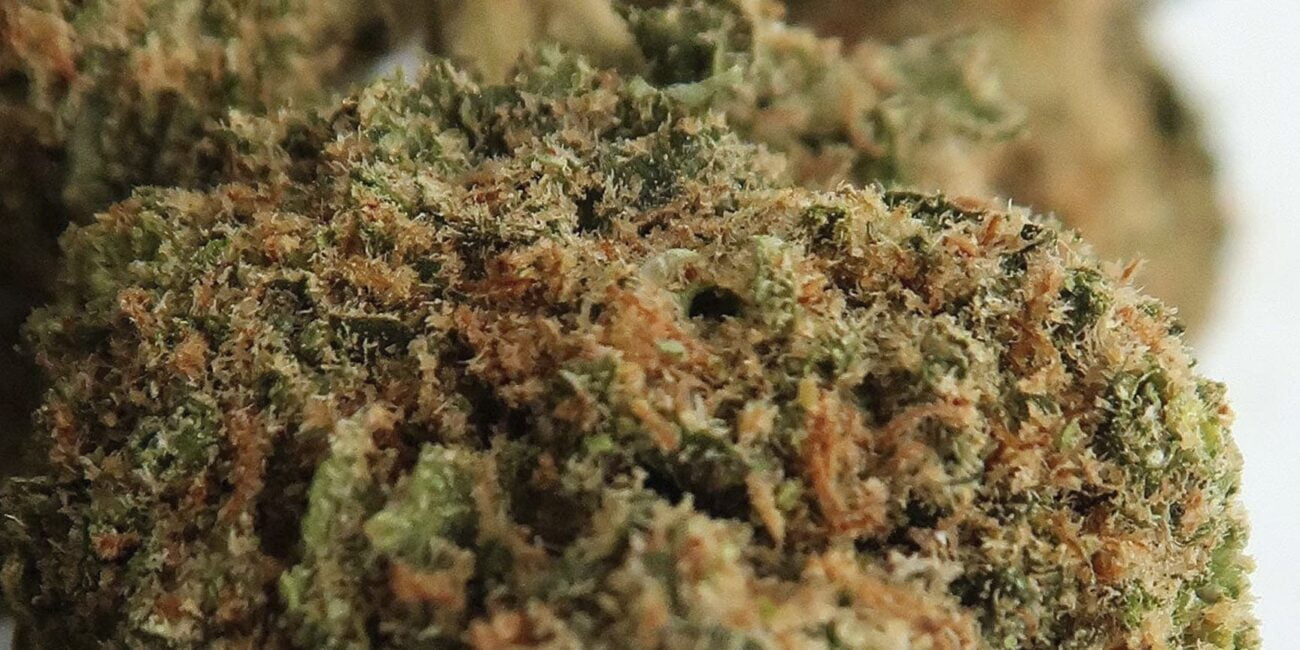
THC: 15-17%
Pineapple Purps, also known as “Purple Pineapple,” is a sativa-dominant hybrid strain resulting from a potent cross between the popular Pineapple Express and Purps strains.
The breeders have carefully bred it to showcase a high THCVA content and an average THC level of up to 17%. This strain offers an incredibly delightful taste, featuring sweet, earthy notes of pineapple with a hint of rich berry wine that lingers on the exhale.
The aroma is similarly appealing, combining earthy sweetness with a berry undertone and a touch of tropical fruit.
Effects: Pineapple Purps is a sativa-dominant hybrid strain that delivers powerful and energizing effects. The high is characterized by a strong psychoactive experience, immediately uplifting the mind and providing a burst of motivation and focus.
This cerebral stimulation can be overwhelming for inexperienced users or if consumed in excessive amounts. The uplifting effects keep users in a euphoric state, with sustained mental stimulation throughout the experience.
Healthcare professionals commonly recommend Pineapple Purps for managing appetite loss, chronic stress, mild to moderate depression, and chronic pain.
Smell: The aroma of Pineapple Purps is delightful and appealing. It combines earthy sweetness with a berry undertone, creating a pleasing scent profile.
An underlying tropical fruit note complements the sweet berry aroma. The combination of earthiness, sweetness, and fruitiness makes the aroma of Pineapple Purps highly enticing.
Taste: Pineapple Purps offers a delicious flavor experience.
A dominant sweet, earthy pineapple note characterizes the taste and is highly enjoyable. Upon exhale, a hint of rich berry wine emerges, adding a touch of richness and complexity to the overall flavor profile.
The combination of sweet pineapple and rich berry wine creates a unique and delightful taste that lingers on the palate.
Check out Week Packs from our catalog.
In conclusion, the question “Does weed make you lose weight?” is complex and evolving. Some studies suggest an association between cannabis use and lower rates of obesity. It is important to note that cannabis should not be considered a treatment for obesity.
Factors such as individual metabolism, dosage, and cannabinoid profiles can influence the effects of cannabis on appetite and weight.
Additionally, other lifestyle factors, such as diet and exercise, play crucial roles in maintaining a healthy weight.
As scientists continue to advance their understanding of cannabis, further research is necessary to fully grasp the mechanisms underlying these associations and to offer comprehensive guidance for individuals seeking to address weight-related concerns.
It is always advisable to consult with healthcare professionals for personalized advice and to ensure safe and responsible cannabis use.









